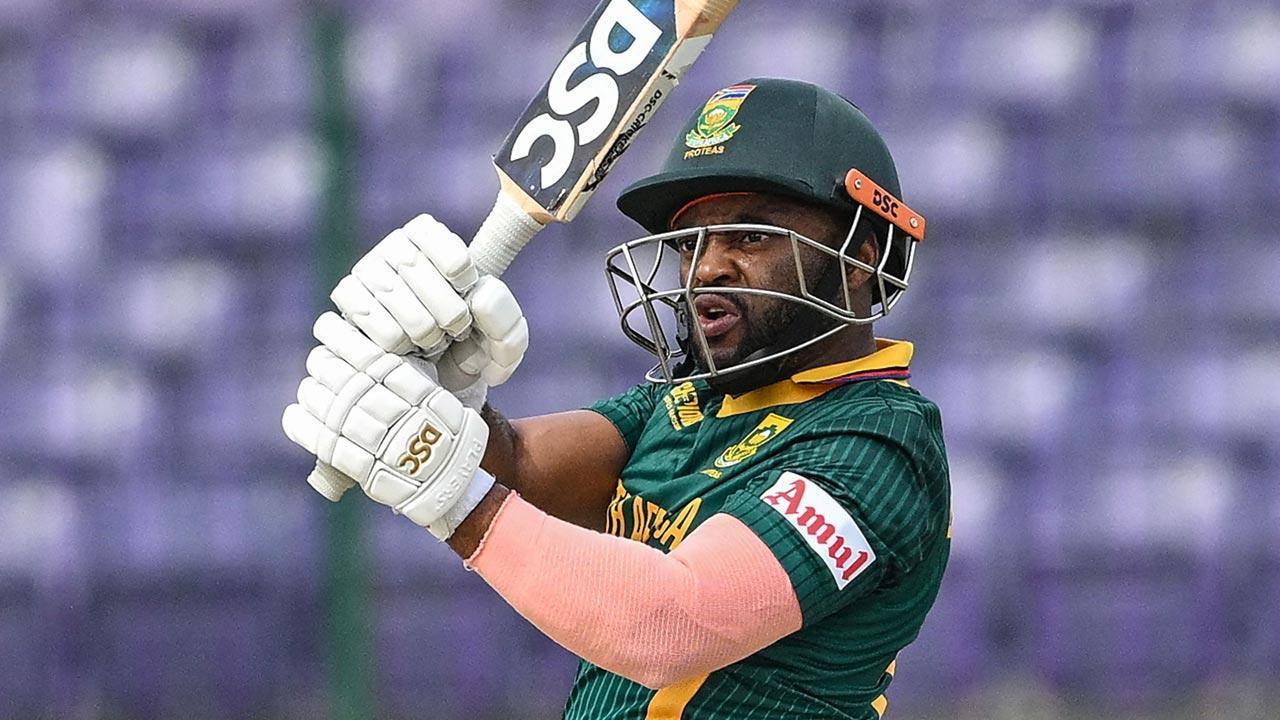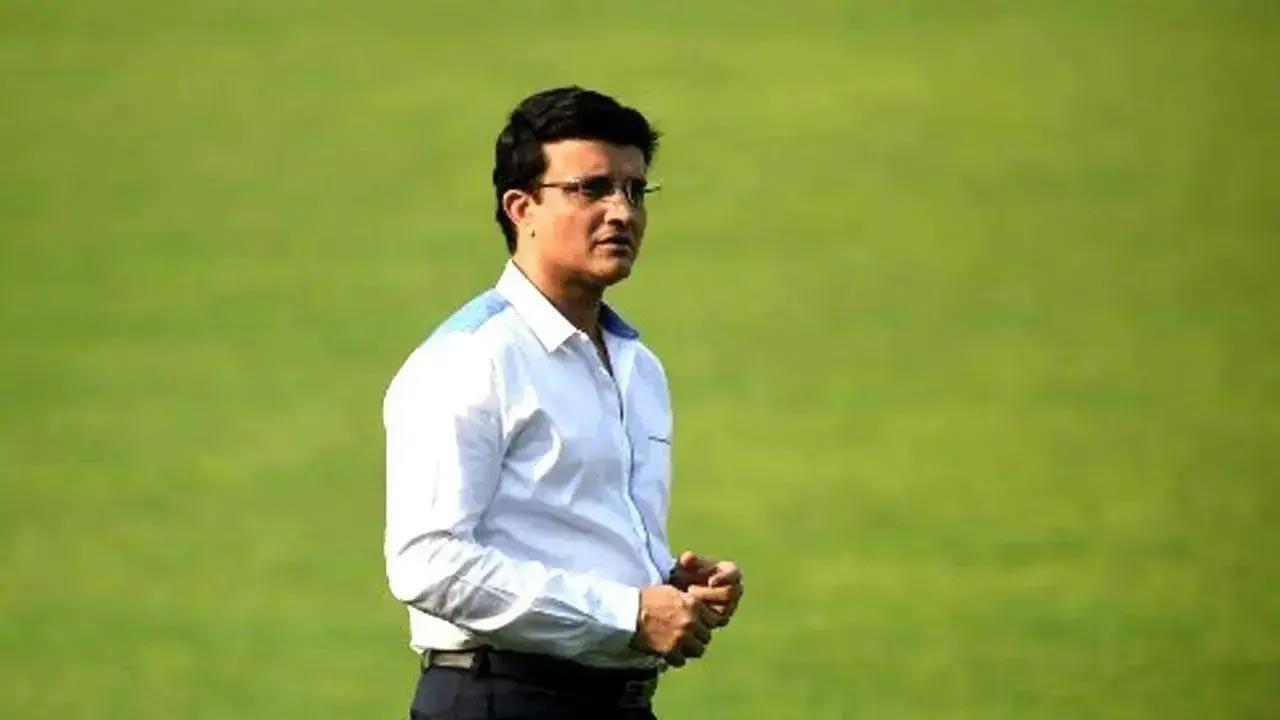
The Battle of Bannockburn is remembered as the pivot point in the First War of Scottish Independence , an English infantry of greater masses and might sent decisively into retreat to lay the foundations for the eventual restoration of the Kingdom of Scotland. Of late, the pair’s rugby rivalry has experienced just as dramatic and decisive a swing. In more than a century of Calcutta Cup conflict, Scottish hands have never held on to the silver spoils for longer than the 1,477 consecutive days they will have had possession by the time they take to the Twickenham turf on Saturday.
Since Gregor Townsend ’s appointment as head coach, Scotland have lost just once in seven meetings with their Auld Enemy; with fly half Finn Russell on the pitch, as he will be this weekend after coming through return-to-play protocols , they are unbeaten in that time. From four wins in 30 years to four in four – even Robert the Bruce didn’t enjoy such sustained success. “I'm not sure if there was a fear factor,” Townsend said this week.

“But I think [Twickenham] was just a place that over history has been very tough for us. England are always a strong team. This group of players have had the experience of winning at Twickenham, which can help as you prepare for the game.
But the reality is it’s about what happens in 80 minutes. And we know it's going to be a very tough match.” The circumstances of each encounter have varied but a few themes run through the Anglo-Scottish battles.
Russell, Duhan van der Merwe and Huw Jones have regularly torn English backlines asunder, while a sometimes-maligned pack has managed to match whatever advantage England may have claimed to count on up front. In stark contrast to their wallows in woe against Ireland, Townsend and his squad have managed to get their mentality spot on for these annual meetings – more accurate, more intense, and much smarter than their opponents. A run of five straight defeats in this fixture would be unprecedented territory for England.
Their recent record against the Scots was described this week in a newspaper column by former skipper Courtney Lawes as “embarrassing”; Maro Itoje , the current occupier of that role, would not quite use that term but the lock is clearly sick of Scottish success. “Our recent record against Scotland is something we are not happy about,” Itoje emphatically stressed. “From our point of view, it’s a brilliant opportunity on Saturday to try to change the narrative there and win the Calcutta Cup.
“They have a better record against us in recent times than most nations. That’s something we are massively motivated to try to overturn. It’s something we’re not proud about, it’s something that we don’t like and hopefully on Saturday we can create our own history.
” The wider context for England surrounds a fear of another false dawn and of a side at their best with their backs against the wall, rather than on the front foot. While the long-awaited win over France in round two felt like a real breakthrough moment, this team has been here before and struggled to back up their best performances with another. Ireland’s fortunes from here will ultimately decide the destination of the Six Nations title but the draw has opened up kindly for England to finish four from four provided they can clear a stumbling block that has proved insurmountable over the last few years.
“We need to seize our moments,” Itoje explained. “In any game you have a finite amount of moments that are there for you to take. In the games after that Ireland win [in last year’s Six Nations], whether it was France or in New Zealand and beyond, we had those moments but we didn’t seize them.
Our opportunity now is to seize the moment. “It is always personal. Rugby is an emotional game.
In my humble opinion, it is a game that requires more emotion than most other sports because of the nature of what we do. We don’t want blind emotion that clouds your judgement. You don’t want blind rage and you don’t want blind, beating-your-chest fury, but you need some of that.
You definitely need an element of that, but you also need accuracy. Rugby is not a game of brute force alone, you need accuracy and you need to have the composure to identify space and execute.” The inclusion of Ollie Chessum should give England greater lineout options from which to set platforms; an improved scrum likewise.
They have plans in place to shut down Russell – not once considering this week that he would not be featuring despite lingering head injury concerns – though know that the rest of the side will carve them apart if they overly focus upon the fly half. Scotland have spent the last 10 days in Spain, soaking up restorative rays and bracing for battle. That escape has given them necessary distance from the noise that has re-appeared around Townsend since their latest Ireland no-show.
The head coach is under renewed pressure as another Six Nations without genuinely tangible tournament success looms; for all the strides they have so clearly made under him, this gifted generation is still to gild their progress with anything other than a collection of Calcutta Cups. Glasgow boss Franco Smith’s fallow week batting of the eyelashes while down in Wales may only have heightened the scrutiny on Scotland’s fortunes from here. The Scottish Rugby Union (SRU) would be mighty keen to keep a South African that many feel is ideally suited for the role should Townsend move on, but their current head coach is under contract until the summer of 2026 – by which time the Welsh Rugby Union (WRU) may have moved for Smith as Warren Gatland’s replacement.
There are obvious parallels to Townsend’s own ascension to the role. Strong overtures towards the then-Glasgow coach from Harlequins forced the SRU’s hand, and Vern Cotter was moved on. It is a mark of the good job that the former fly half has done that the side’s supporter base has grown expectant.
An historic fifth successive claiming of the Calcutta Cup would be most welcome. “I don't think it's ever the case the game of rugby is won by who's up for it more. and sometimes it's lost by being up for it too much,” Townsend explained of the need to balance passion and pride with poise and precision.
“I would say though that maybe in the past, and I'm speaking personally here, that that was too much a factor, too much emotion came out, and not enough calmness and clarity in what we were doing. “I know the passion will be there to play for your team-mates, to play for your country, to show an improved performance from the last game. But we have to be calm amongst the chaos, which there will be at times at the weekend.
” The shifting psyches in this fixture add layers and layers of extra intrigue; so too the many duels given wider context with British and Irish Lions selection looming. It was a 61-21 drubbing at Twickenham in 2017 that ended the hopes of many potential Scottish tourists then – such a lopsided result is surely not on the cards but England will feel it is about time that Scotland were sent homewards tae think again..















